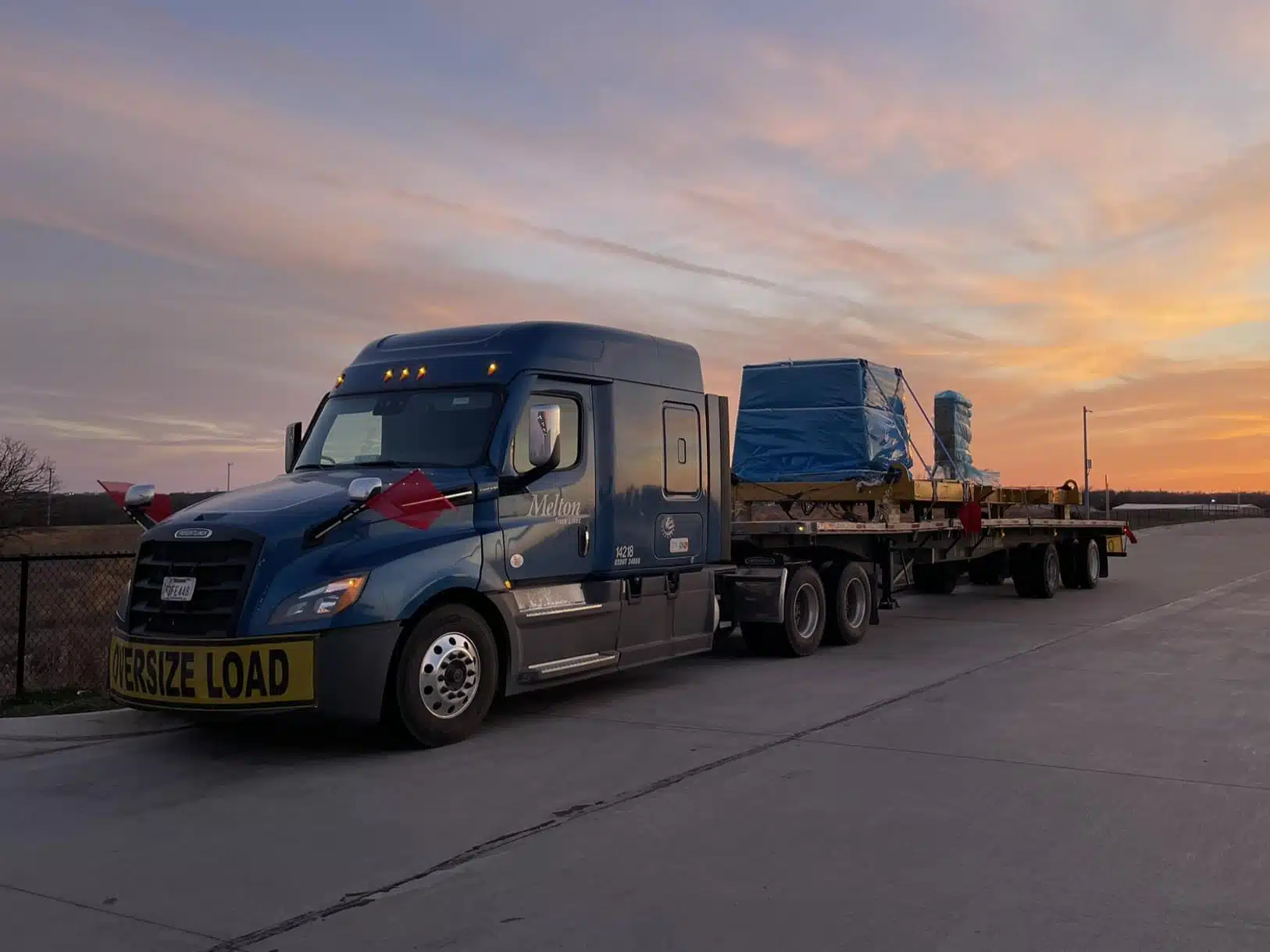
The Essential Guide to Tarping Your Flatbed Freight
When picking a company to ship your freight with, there are a lot of factors that need to be considered. From the type of load, weight/size restrictions, and additional requirements for the route that freight is going to take. Another box that must be checked, however, is determining if your load requires tarping.
What is Tarping in Flatbed Trucking?
Tarping is the act of covering goods on any kind of open-air trailer while they’re in transit. Not all loads require, or even have the ability to be tarped, but many will depend on the size and sensitivity of the load itself, or simply based on the state’s requirement that a driver is passing through. Tarping is often done by the truck driver by hand before leaving the shipper location.
Though an individual may be familiar with a tarp, there are multiple kinds that vary in length and durability. Here, we’ll dig into the differences between certain tarps and determine if your load may require one.
Different Types of Tarps
Lumber Tarps: These tarps are made to be resistant to water and protect lumber from wind, rain, snow, and even the sun while in transit to prevent warping and discoloration. They also have an additional flap at the end to cover the corners of a load. Common sizes for these tarps are between 24’ feet x28’ feet and 20’ feet x 27’ feet, and approximately 2 – 3 tarps are required to cover wood that is loaded on a 48-foot or 52-foot flatbed trailer.
Steel Tarps: Steel-rated tarps are made to be waterproof and are used to cover a variety of commodities, like steel cables, rods, and fencing. A big difference between steel and lumber tarps is that steel tarps do not have a flap at the end for that additional coverage. Steel tarps also come in a wide variety of dimensions, from 16’ feet x 27’ feet, up to 30’ x 30’.
Machinery Tarps: This type of tarp is used in protecting heavy construction machinery and vehicles- everything from cranes and excavators to HVAC units and factory equipment can be covered with these tarps, as they’re often made of thicker, more durable material to account for sharper corners and irregular sizing. While these tarps are made larger and can go up to 30′ x 30′, multiple may be needed depending on the load.
Coil Tarps: These tarps are unique in design, sometimes even called coil bags, and are made to protect loads with round edges such as steel or aluminum coils. They can be placed on easily and are made to be water-resistant.
Smoke Tarps: While not commonly used, these tarps are placed on the upper front portion of the load to protect it from dust and soot produced by the truck exhaust, as well as insects and other debris.
While many of these tarps can be interchangeable and used on various kinds of loads, it’s important to consider the load parameters and how much protection it will need in transport. Knowing the details in advance will help prevent load damage and could potentially even save additional costs down the road.

